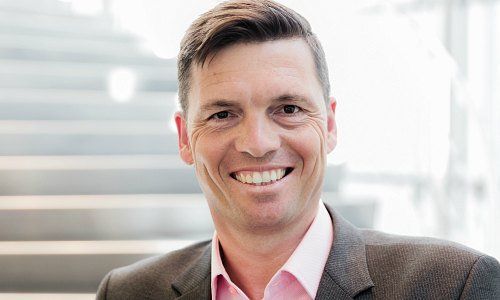Christian Leitz: «Axel Weber Takes Sustainability Very Seriously»
UBS' sustainability strategy is strongly influenced by Chairman Axel Weber. The man responsible for its implementation, Christian Leitz, tells finews.asia why the strategy is key to UBS's success.
Christian Leitz, UBS has signed up to more and more sustainability goals and shifted itself in that direction. What does sustainability stand for exactly?
Fundamentally, sustainability means to think and act with a long-term view. This starts with stability and economic success. Business decisions, product and service offerings and our commitment to society are all part of this.
Ecological or social issues aren't the focus?
It depends on how you are looking at it. If you want to be successful in the long-term, you have to consider ecological and social issues. Foresting is an example from another industry, which is at the hart of the term sustainability. The operator is constantly weighing how to cope with a basic resource – forest – in a long-term and sustainable way.
So it was mostly about eliminating operating risks within UBS in order not to jeopardize the bank's long-term success?
Besides capital strength and efficiency, risk management is a core pillar for the sustainable success of a bank. Solid risk management which includes operating risks as well environmental and social ones is essential. But this is just one side of the coin; the other is business activities, products, and services.
Do you have an example from the risk side?
The question arises in dealings with clients from a controversial part of the economy...
For example in palm oil production or mining...
...and whether one rejects a business relationship, or attempts to influence the firm to change its business practices. We pursue both approaches.
«The challenge is the speed»
There are also less clear-cut cases where it is more sustainable to utilize a corporate relationship in order to persuade the client to improve their practices. This is currently hotly debated in the industry in relation to the question of what is more sustainable or more effective.
There are contradictions between UBS as a profit-seeking global firm which wants to make the world a better place – by selling its very wealthy clients products which promise to make them even wealthier. Are these contradictions discussed at UBS?
The question is how can we utilize our clients capital to have a positive influence on social or ecological issues, while posting a return. That's the direction we are going. The challenge of this evolution is the speed with which this transformation is accepted by the public. The fact is, hundreds of millions of client assets at UBS are already managed according to sustainable criteria.
- Page 1 of 2
- Next >>




























